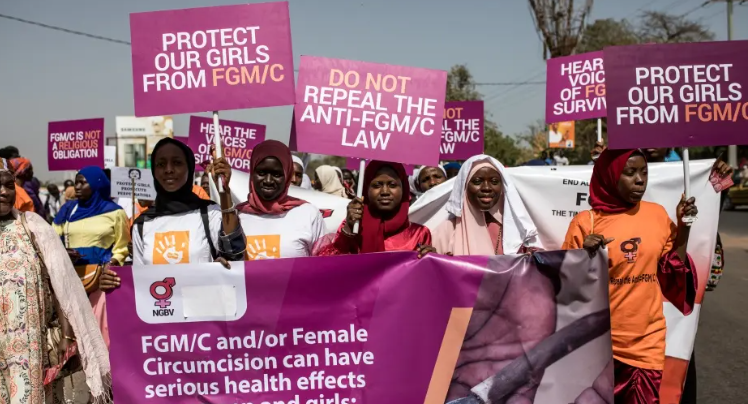Gambia’s Bill to Unban FGM: Tradition vs. Women’s Rights

Gambia is currently grappling with a controversial bill that seeks to lift the ban on Female Genital Mutilation (FGM). The proposal has sparked a heated debate, pitting cultural traditions against the fight for women’s rights and bodily autonomy.
The Bill and Its Proponents
The bill to unban FGM has been introduced by lawmakers who argue that the practice is a significant cultural tradition that should be preserved. Proponents claim that FGM is an integral part of the cultural and religious identity of certain communities in Gambia. They argue that the ban infringes on their cultural rights and autonomy.
Cultural Significance of FGM
In some Gambian communities, FGM is seen as a rite of passage and a marker of ethnic identity. Supporters of the practice argue that it plays a vital role in social cohesion and community bonding. They believe that lifting the ban would restore cultural pride and honor longstanding traditions.
Opposition and Human Rights Concerns
Opponents of the bill, including women’s rights activists, healthcare professionals, and international organizations, strongly condemn the move to unban FGM. They highlight the severe physical and psychological harm caused by the practice, which includes chronic pain, infections, childbirth complications, and even death. The World Health Organization and other health bodies classify FGM as a human rights violation and call for its global eradication.
Legal and Ethical Implications
The debate over the bill raises significant legal and ethical questions. Lifting the ban on FGM would place Gambia at odds with international human rights conventions, including the Convention on the Elimination of All Forms of Discrimination Against Women (CEDAW). Critics argue that allowing the practice to continue undermines the rights and dignity of women and girls, perpetuating gender inequality and violence.
Voices of Survivors
Survivors of FGM have been vocal in their opposition to the bill. They share harrowing stories of the pain and trauma they endured and advocate for the protection of future generations. Their testimonies are powerful reminders of the personal impact of FGM and the importance of safeguarding women’s rights.
Public and Global Reaction
The bill has attracted widespread attention and criticism from both within Gambia and the international community. Human rights organizations, including Amnesty International and Human Rights Watch, have called on Gambian lawmakers to uphold the ban and protect women’s rights. Public opinion in Gambia is divided, with some supporting the preservation of cultural practices and others advocating for the protection of women’s health and rights.
Government Response
The Gambian government faces a challenging decision. Balancing cultural traditions with the need to protect human rights is a complex task. The government has indicated that it will consider all perspectives before making a final decision, emphasizing the importance of dialogue and understanding.
As the debate continues, the outcome of the bill will have far-reaching implications for Gambia’s legal and cultural landscape. It will serve as a critical test of the country’s commitment to upholding human rights and protecting vulnerable populations. The international community will be watching closely, ready to support efforts to safeguard women’s rights and promote cultural sensitivity.
The bill to unban FGM in Gambia has ignited a crucial conversation about the intersection of tradition and human rights. The decision will not only impact the lives of women and girls in Gambia but also set a precedent for how societies navigate the tension between cultural preservation and the protection of fundamental rights.





